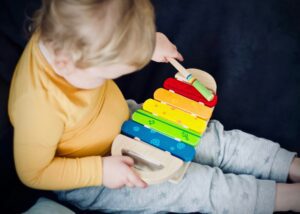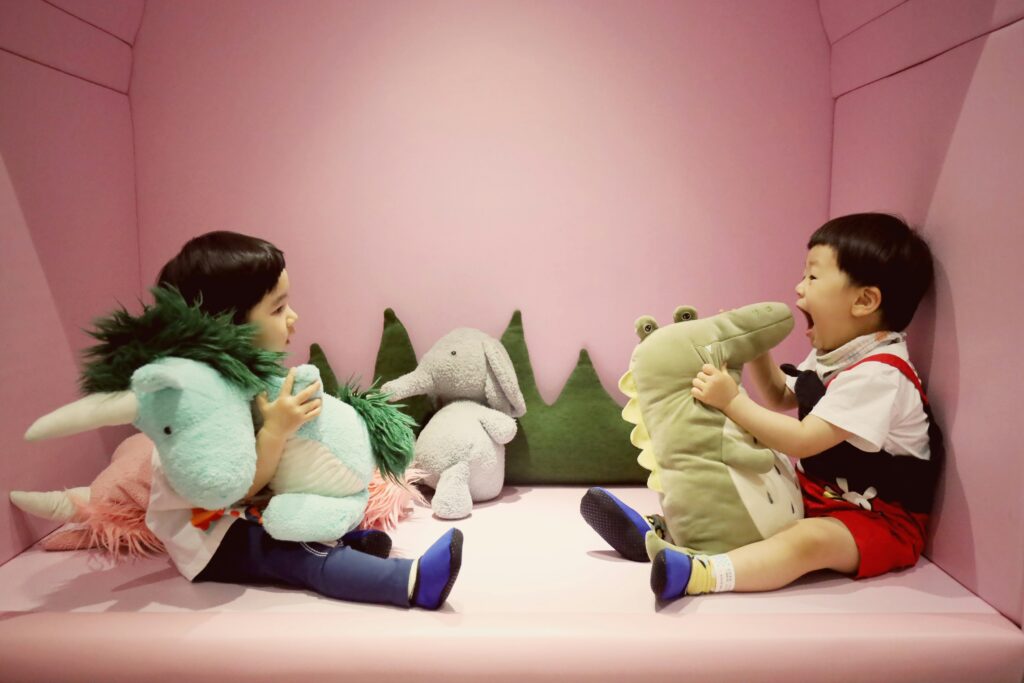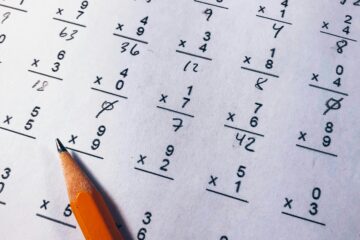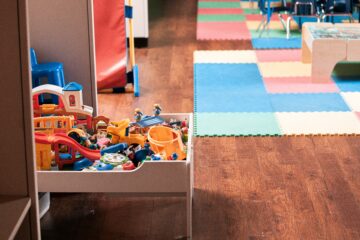As children, we all grew up with the right tools to help focus, develop and nurture all cognitive levels of our brains and it is important to choose the right toy/tools to ensure good development. Similar to normal children, neurodiverse children require a lot more care and research when it comes to choosing toys.
Toys can be instrumental in learning about the world around them, especially educational toys and it is extremely vital to choose the right toy according to various factors like interests, skills, etc. of your child.
In this guide, we have curated a few important points to help and guide parents of children with all abilities to be able to choose the right toy in order to help develop their learning skills.
How Children Learn Through Play

It is commonly understood that children learn through play, and this elevates their cognitive, physical, social, and emotional well-being while also increasing their social skills.
Educational toys can be in different forms like letter puzzles, number blocks, flashcards, storybooks with tiny-talkers and puzzle eggs and more. They are simple yet powerful tools to help increase cognitive and learning skills.
Playtime is always associated with fun and entertainment and using this for many years people have found various ways to teach and educate their children during playtime as it is engaging, fun and memorable.
While it is challenging to teach children with lesser abilities, it is also vital for them to know and understand the world around them. This can be done using toys and tools that are fun, engaging and creative so that neurodiverse children are able to learn through their unique challenges.
Factors to Remember When Choosing the Right Toy

- Based on Age – Depending on the age of the child, it is important to ensure the toy is age appropriate as this is the first factor that determines the mental growth and motor and fine skills of the child. The age factor described for the toy may generalize the growth rate for all children, regardless of their disabilities or their actual understanding and learning rate.
- Based on Disability – While encouraging special needs children to play, especially with toys, it necessary to understand their disabilities more intimately. This will allow you to choose the right toys and tools to help work on enhancing and growing their current abilities. For e.g. Children with physical impairments are most likely to benefit from toys that have large parts and sturdy bases to prevent unwanted movement, such as building blocks with large pieces or activity tables. Those with hearing impairments might enjoy toys that provide lights or visual feedback and have interesting textures, such as light-up sensory balls or interactive touch boards. Blind children would benefit from toys with a variety of textures, surfaces, and sounds, like textured puzzles or musical instruments. Children with developmental disabilities may enjoy toys that allow them to act out real-world situations, such as play kitchen sets or dollhouses.
- Based on Interest – Children of all abilities (including the neurodiversity) will always have some piqued interest in something particular. Understanding that is essential in picking the right toy, as the child should be interested so that there is a steady increase in engagement and boosts motivation. Children who are hyper-focused would much prefer toys that are problem-solving and innovative, whereas hyperactive children would prefer toys that are more sport-related and active play.
- Based on the type of Play – There are two types of plays that children enjoy – Active and passive. Active Play includes physical activity and playing while Passive Play includes using the mind to play games while also being engaged. Active Play includes games like building blocks, puzzles, and while Passive Play has interactive games like video games, listening and speaking games etc.
- Ensuring Engagement & Inclusivity – An extremely engaging toy peaks and maintains the interest of children. This reduces frustration while making the children feel increasingly normal and inclusive with other children.
- Consulting the children’s Special Needs Teacher – It is best to consult the special needs teacher who understands their child as they have more experience in understanding the child’s behaviour, interests and attention span.
Recommended Toys
- STEM Toys
- Adaptive Toys
- Motor Skill Toys
.


